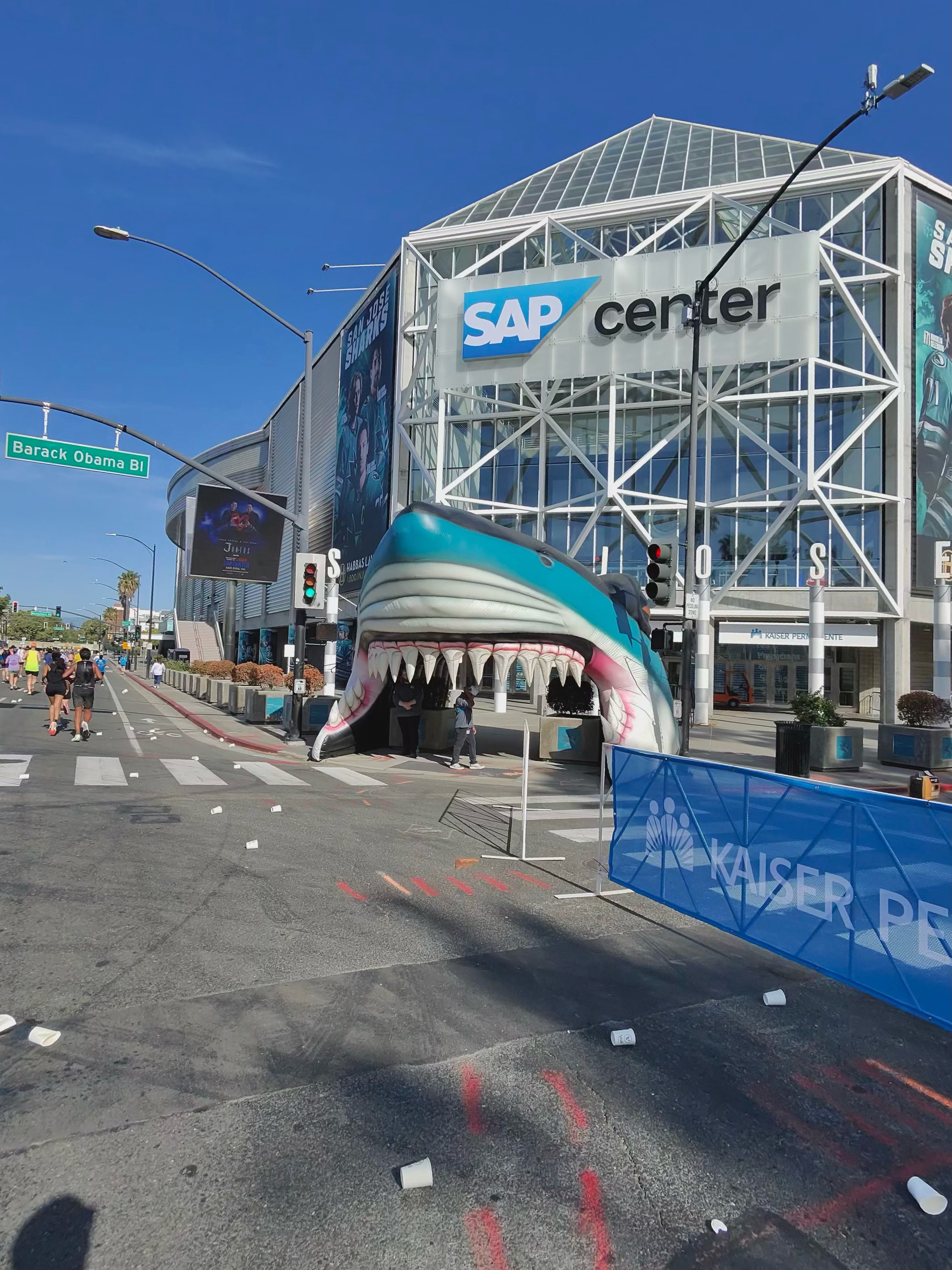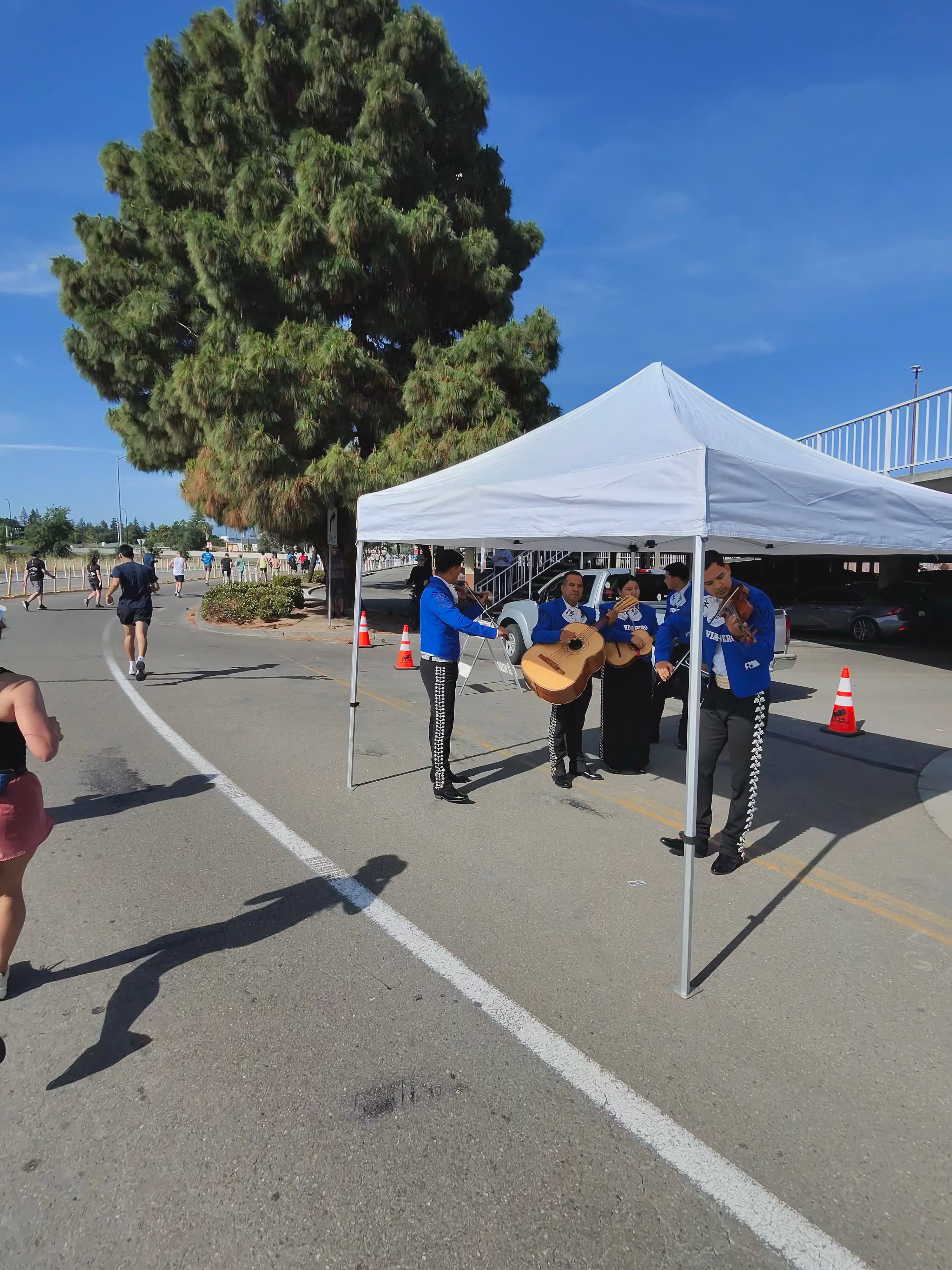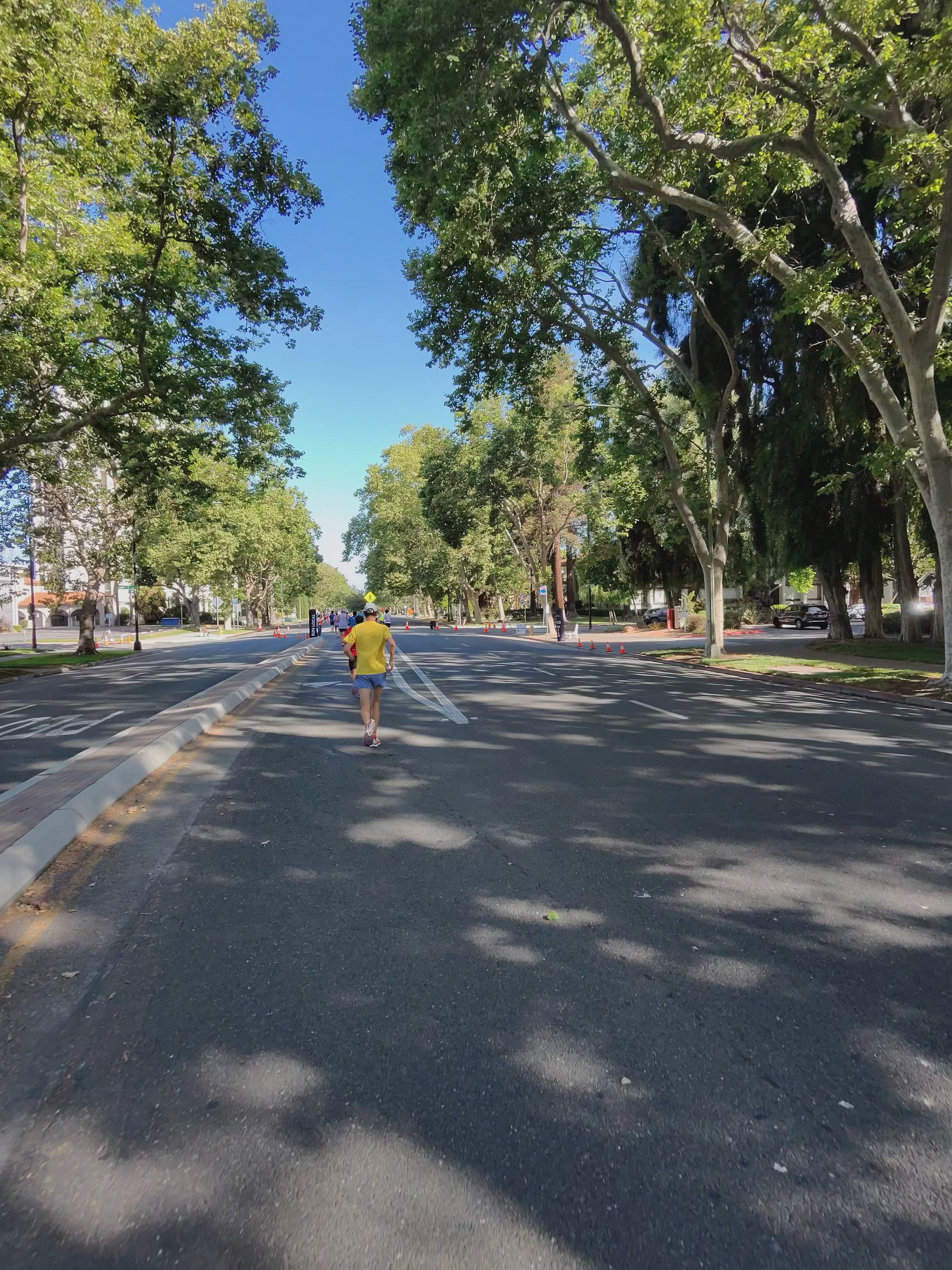Sunday Runday
On this weekly column, Android Central Wearables Editor Michael Hicks talks in regards to the world of wearables, apps, and health tech associated to working and well being, in his quest to get sooner and more healthy.
I made a decision to put on my Ray-Ban Meta glasses in the course of the San Jose Half Marathon final Sunday. I admit I fell off carrying my good glasses in latest months as I relied extra on my Shokz OpenFit 2s for open-ear streaming. However I made a decision higher solar safety and the possibility to snap just a few images mid-race would make them value dusting off.
I ended up comfortable that I wore them, however the expertise additionally jogged my memory why I sometimes solely put on them in informal settings, not runs or exercises. I am ready to see if the 3rd-gen Meta glasses can do any higher later this 12 months, with or with out the AR tech.
Snapping away
Issues began off nice. Regardless of being heavier than my common glasses, my Wayfarer-style Ray-Ban Metas felt comfy and lined up my eye luggage for selfies after my 5am wake-up name. And at a race the place everyone seems to be snapping images or breaking out their GoPros, I used to be much less apprehensive than standard about creeping folks out with refined glasses images.
From the beginning line onwards, I used to be in a position to attain up and snap images with a button faucet whereas retaining my eyes forward, as a substitute of slowing right down to yank my telephone out of my pocket and line up the viewfinder. I hardly ever take images throughout races once I’m targeted on staying within the zone, however I ended up taking 22 images and one finish-line video by the tip.
San Jose is the farthest factor from a scenic course for good images, however I wished to check how these glasses carried out earlier than bringing them to, say, Massive Sur or NYC.
I additionally streamed my Half Marathon playlist in the course of the race to maintain me motivated, however with my ears totally uncovered to listen to anybody attempting to go me and courteously keep away from stumbling into them. Since most races “extremely discourage” or outright ban headphones, it is a actual perk.
However carrying Ray-Ban Meta good glasses in the course of the race had its fair proportion of cons, too.
My three important points with carrying good glasses throughout a race
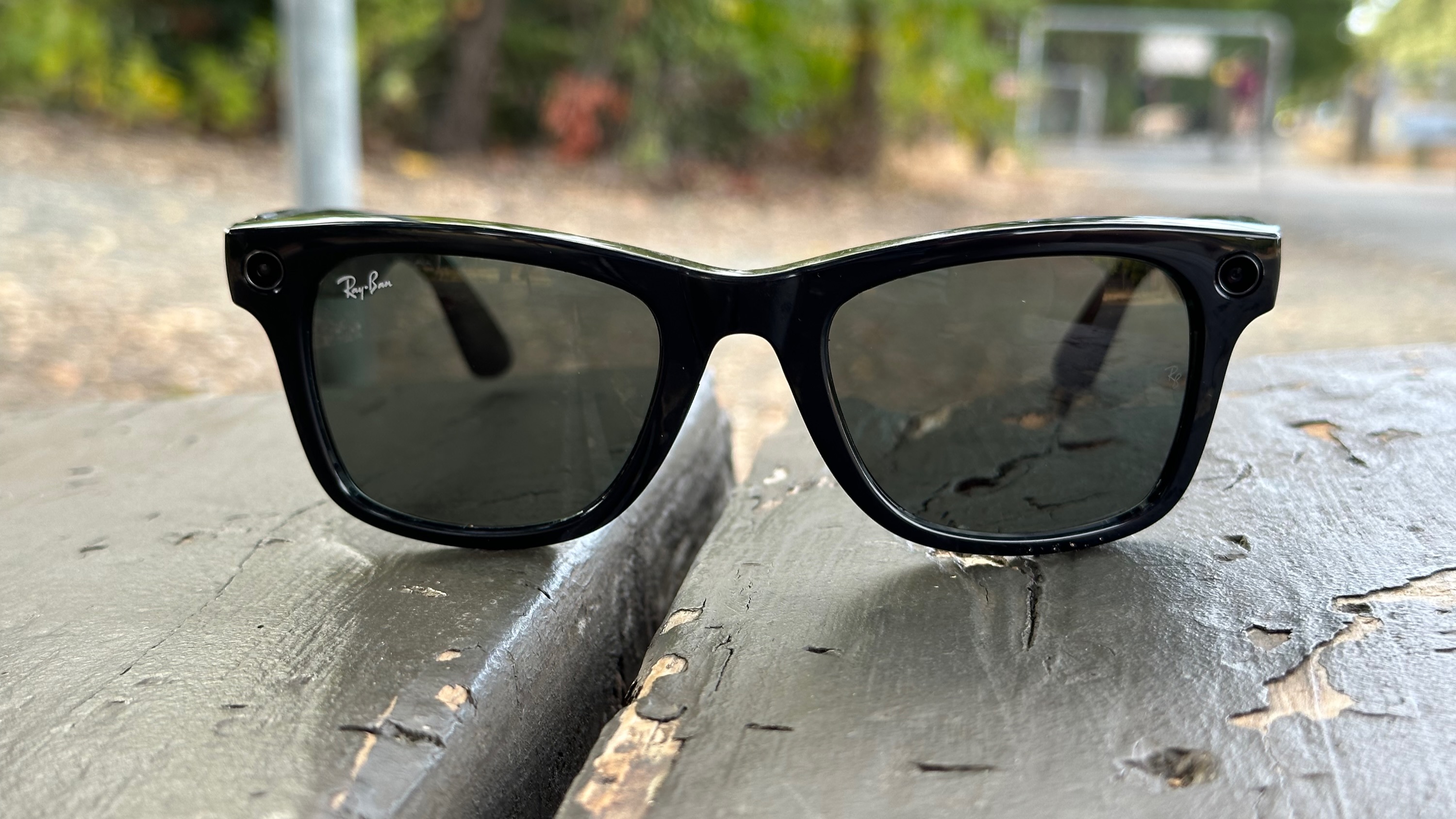
I have a tendency to not put on my regular glasses throughout runs as a result of I can see effectively sufficient that it is by no means felt value shopping for a strap to keep away from them sliding down my nostril. With my 50g Ray-Bans, it is clear I will want to purchase and strap on this thick, dorky lanyard earlier than I strive one other race with them.
They stayed in place for possibly 400m, however as soon as my nostril obtained sweaty, they began slipping. If I pushed them up, I instantly felt the load bouncing and jiggling on my nostril bridge earlier than they slid down once more.
I stored them in place by retaining my head tilted barely up like some snooty nobleman in a BBC interval piece, nevertheless it did take me a bit out of the zone to really feel so inflexible. And even when I wore the lanyard and so they stayed in place, I think they’d nonetheless bounce uncomfortably due to the load.

My second downside is much less dire: with no viewfinder, it is easy to overlook within the second that it’s essential to rise up shut and private together with your Ray-Bans to get a transparent picture. I might see one thing cool and snap a photograph, solely to later should squint and zoom in simply to recollect what my topic was amidst the panorama.
On this picture, for instance, I noticed the lead runners ending their out-and-back the opposite approach and thought it might be cool to seize them. However they’re barely noticeable and blurry as a result of I took the shot from approach too far again.
The decision is nice for glasses, and the ultrawide impact recreates the sensation of standing in a reminiscence reasonably than composing a photograph. Specifically, my video of the ultimate dash, which I can not embed right here (sorry), appeared startlingly clean in comparison with the way it felt within the second.
The purpose being, I am nonetheless glad I wore them. I can jog my reminiscence of the course with out having to pay $50 for images of me panting previous camerapeople. Subsequent time, I will know that I have to place myself proper subsequent to the topic first, or else the picture will not prove effectively.
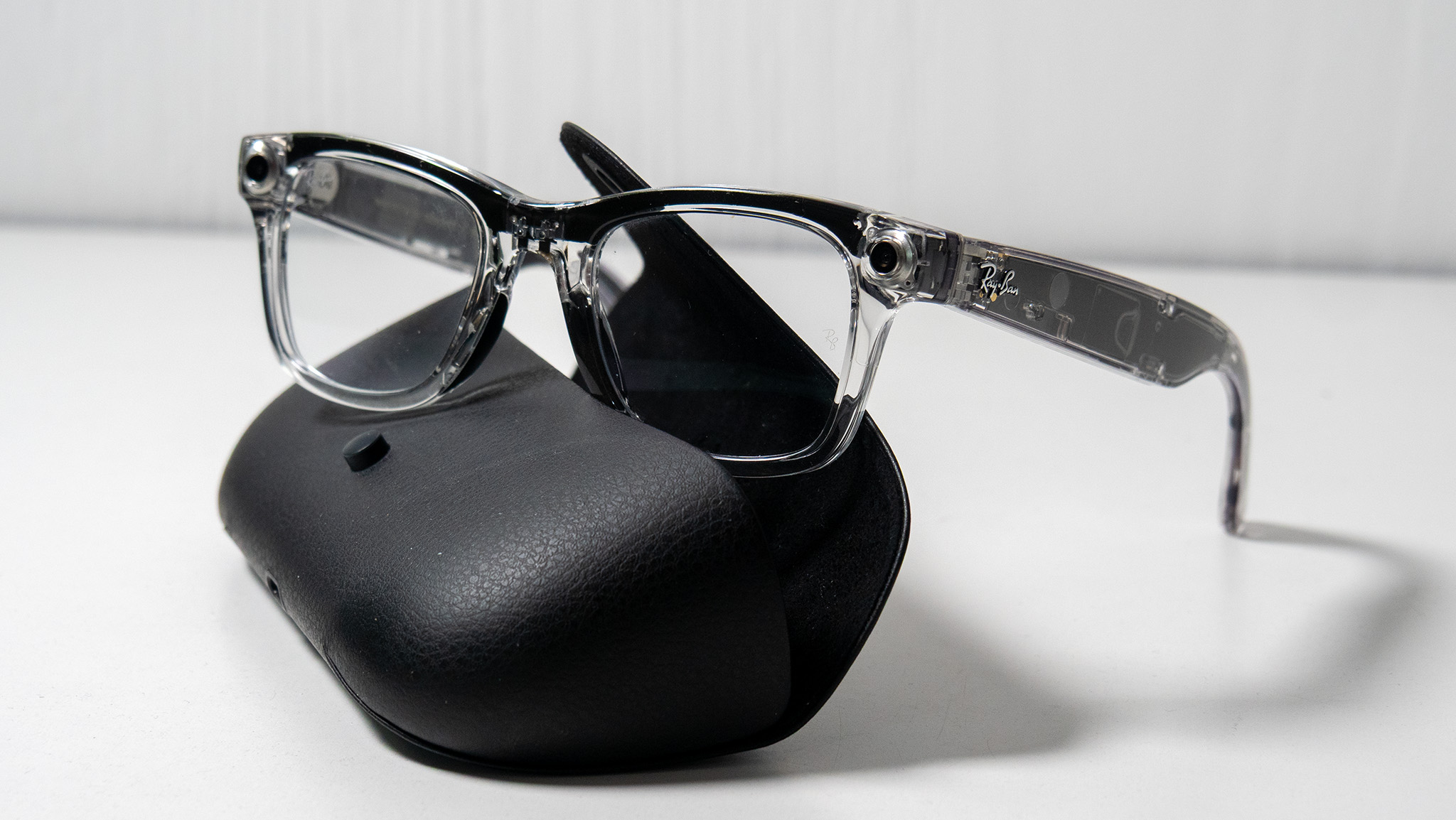
The actual deal-breaker, although, is battery life. I took my Ray-Bans out of the case about quarter-hour earlier than the beginning and did not use them till then. At that time, I streamed music and took 22 images and one video all through my 1 hour 54-minute race, plus one unintentional Meta AI set off. As I cooled down, I checked my battery life: 8%.
Meta estimates its glasses will final 4 hours with “reasonable” use and the precise circumstances, together with “100 movies or as much as 500 images per full cost.”
Sensible glasses wrestle with battery life in chilly climate, however I would not name mid-60ºF chilly. Streaming music was a part of the issue, so possibly I may put on my Ray-Bans and earbuds for one more race and use the glasses solely for images. I additionally forgot to disable the “Hey Meta” wake phrase, which might trigger a good quantity of idle drain.
The largest challenge, although, is solely that my glasses are almost two years previous, and the capability is fading. And because it’s “not possible to interchange the battery inside your glasses” as a result of it is soldered in, I might should spend $329 on one other pair to get higher longevity.
So if I ever put on these for a marathon, I’ve to simply accept that I will solely seize content material for the primary a part of the race (until I’m going from a mean to Olympic-level runner).

We do not prefer it when our telephone or watch wants extra charging after just a few years, however we count on it. With new wearables like smart glasses and smart rings, although, they’re already working off such restricted capability from small kind elements that the degradation feels far more apparent and rapid. And in contrast to your telephone, good glasses and rings cannot be disassembled so as to add a brand new battery, not with out breaking them.
Energy customers will proceed to shell out $300 each couple of years for brand new glasses, however for the remainder of the 2 million Meta glasses buyers, they could maintain off on shopping for the following model if the battery fades simply as rapidly, particularly since Meta AI is the large promoting level of the commercials and the worst supply of energy drain.
Having examined out running AR glasses not too long ago, I am curious in regards to the rumored Meta “Hypernova” glasses with a holographic show. Then I may see stay stats like coronary heart charge and tempo with out having to look down at my watch. However I would not name this function “important” for race day.
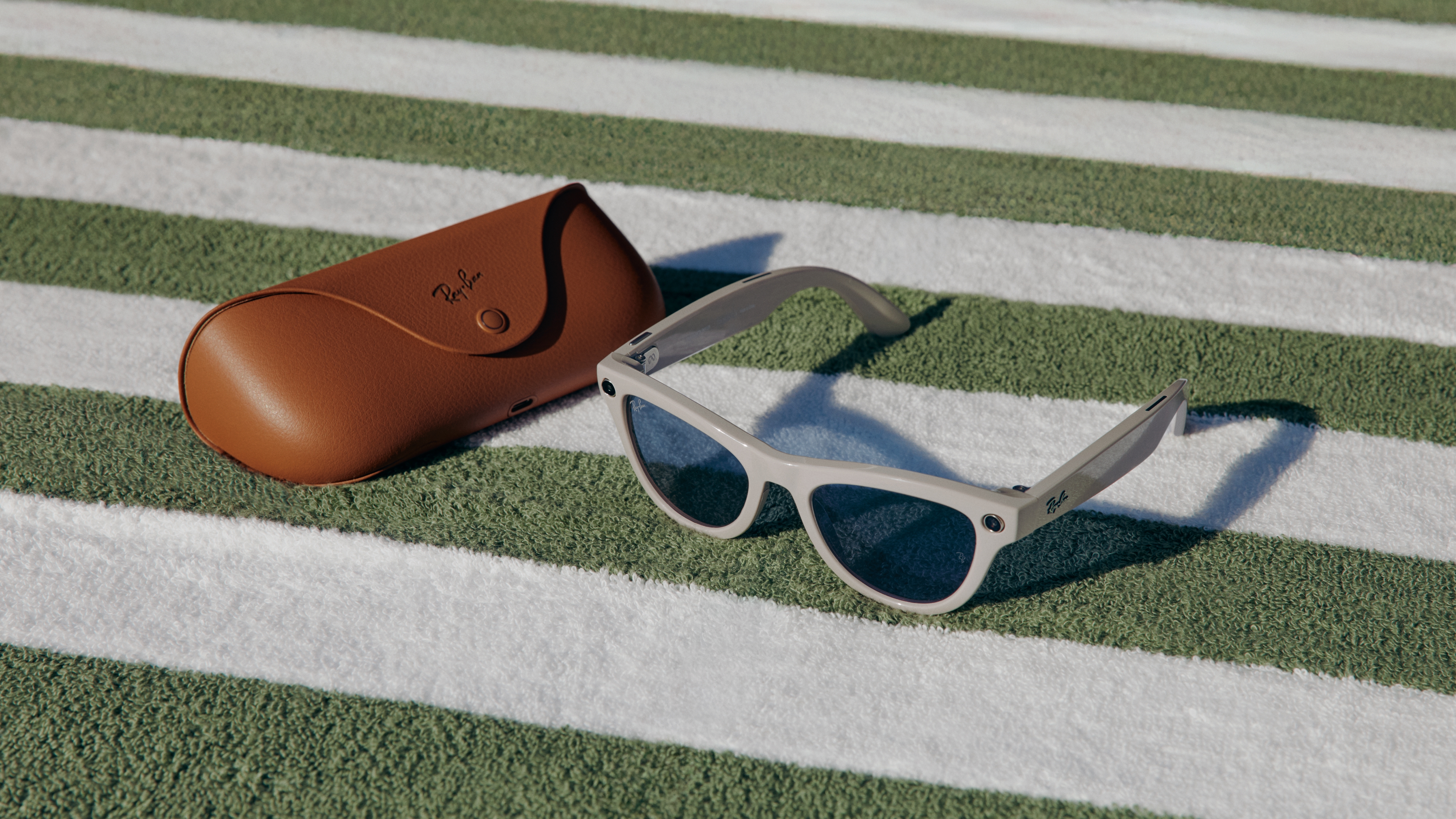
On a extra basic degree, I would like the following era of Ray-Bans to unravel or mitigate the battery downside earlier than I make them a daily race companion.
Ideally, it’d have a repairable design to permit for simply replaceable batteries. If that is not doable, then Meta may use a denser solid-state battery that lasts so lengthy out of the field that it stays respectable even after a few years of fading capability.
If it began at eight hours with reasonable use, then I may abdomen my Ray-Bans fading to 4 hours after a few years.
It’d even be good if Meta copied Android and iOS with a Battery graph that reveals which operate — music, images, or AI queries — burns via probably the most capability, so what you possibly can safely use or ought to keep away from. Or there may very well be a battery saver mode that disables capabilities you will not want.


